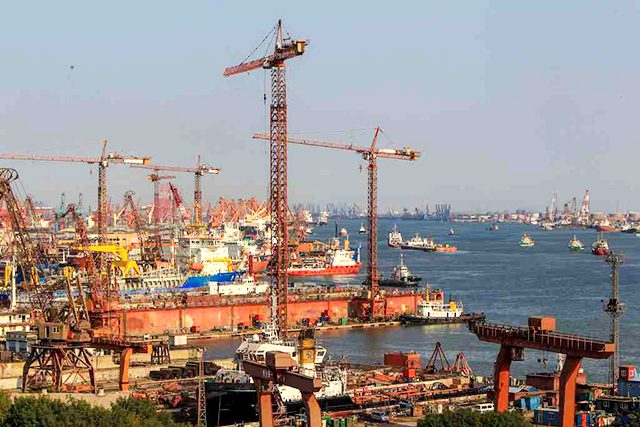SUMMARY
This is AI generated summarization, which may have errors. For context, always refer to the full article.

MANILA, Philippines – The move to open up the economy to more foreigner players got a boost as the Department of Finance pegged May 2017 as an opportunity to remove some of the restrictions found on the foreign investment negative list.
The foreign investment negative list, which was last updated in 2015, lays out investment areas of the economy that are closed to foreign investment as well as areas where foreign ownership is limited to 40% of the venture.
“There are two ways we can lift the [economic] restrictions in the Philippines. One is there are administrative restrictions. The window will open for us to review that in May of 2017 and certainly, the economic team is going to look at lifting administratively some of those restrictions,” Finance Secretary Carlos Dominguez III said in a statement on Monday, November 14.
Dominguez pointed out however that the other restrictions are going to be a little tricky because they require either legislative action or changes to the Constitution.
The finance secretary earlier said that Congress will have to enact a long-term approach to further liberalize the economy by amending constitutional provisions restricting foreign ownership in all areas of the economy, except land.
The list of industries closed to foreigners remains mostly unchanged from the previous reviews.
Sub-list A of the list specifies the areas of economic activity where foreign ownership is prohibited or limited by the Constitution or laws. These include:
- Mass media
- Practice of all professions
- Cooperatives
- Private security
- Small-scale mining
- Private radio communications
- Private recruitment for local or overseas employment
- Advertising
- Ownership of private lands
- Lending
- Financing
- Investment houses regulated by the Securities and Exchange Commission
Sub-list B includes limitations on economic activities regulated by law such as:
- Small- and medium-scale domestic enterprises
- Defense-related industry (i.e., manufacture of firearms, etc)
- Businesses that have implications on public health and morals (i.e., gambling, sauna, massage clinics, etc).
Under the Foreign Investments Act of 1991 (RA 7042), foreign investors are allowed to own 100% equity in businesses excluded from the negative list.
Hurting investments
The joint foreign chambers have long pointed out that foreign restrictions, mostly in the form of the 60-40 law, is hurting foreign investment, noting that lifting some of them could double foreign direct investment and push growth sectors such as renewable energy and mining.
President Rodrigo Duterte has also indicated that he is open to the idea and has recently secured more than P20 billion in investment pledges from China and Japan.
“Either way, it’s not going to happen tomorrow, it’s going to take a bit of time. Now, according to the President, he wants to open all areas of the economy to foreign investment with the exception of land, which is a very cultural and touchy issue,” Dominguez said.
He pointed out that Malacañang cannot commit to a specific timeline as to when the economic restrictions would be lifted, because it is up to the Congress to initiate it.
The committee on constitutional amendments of the House of Representatives has already approved a resolution calling for the convening of the 17th Congress as a Constituent Assembly (Con-Ass) to amend the Constitution.
The Senate will start its charter change debates early next year, and has yet to decide if it will agree to a Con-Ass or call for a duly-elected Constitutional Convention (Con-Con) to review the Constitution.
Corn and rice
One other potential growth sector is agriculture, specifically corn and rice where Presidential Decree No. 194 issued in 1973 limits authorizes foreigners, as well as corporations, partnerships or associations owned in whole or in part by foreigners, to 60% ownership to e transferred over time.
The National Food Authority has set a period of 30 years after which 60% of ownership in rice and corn businesses fully owned by foreigners, must be transferred to Filipino citizens which was upheld by the most 2015 Negative List.
In meeting with Dominguez last week, the American Chamber of Commerce (AmCham) said that this is “disincentive to investment” and requested that this condition be extended from 30 years to 50 years.
Dominguez said he will look into these concerns by AmCham and will consider it when the economic team reviews the Negative List next year. – Rappler.com
Add a comment
How does this make you feel?
There are no comments yet. Add your comment to start the conversation.